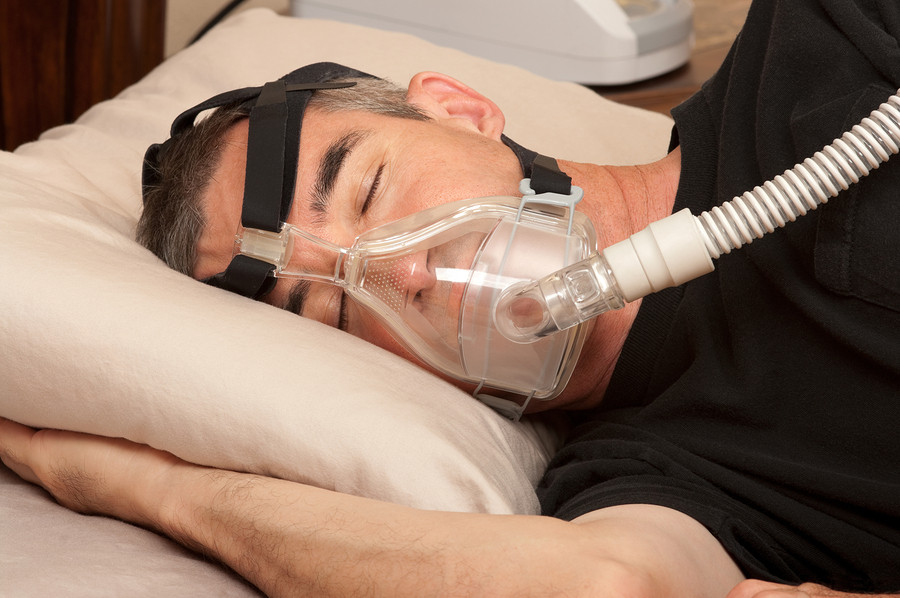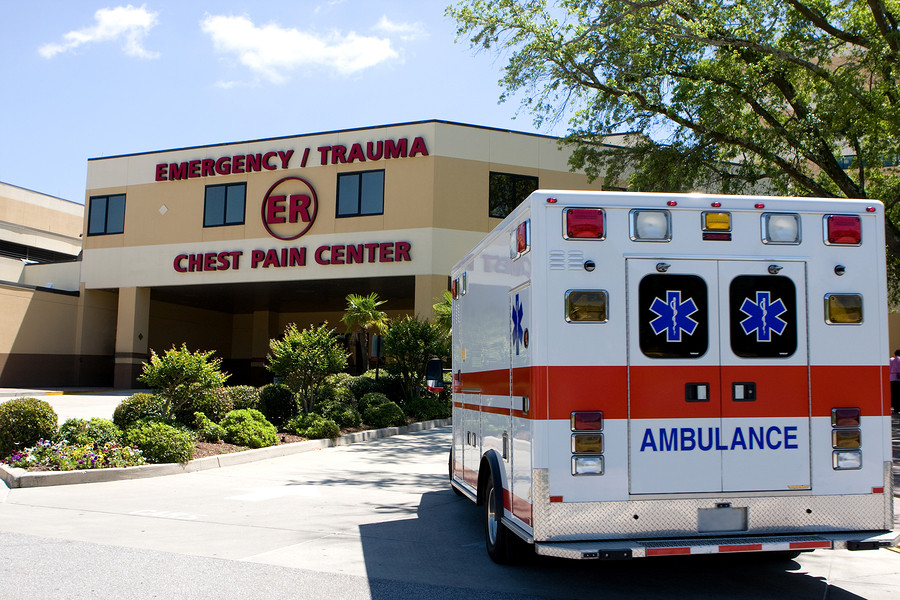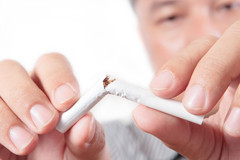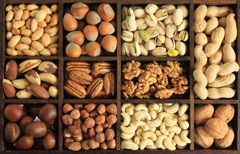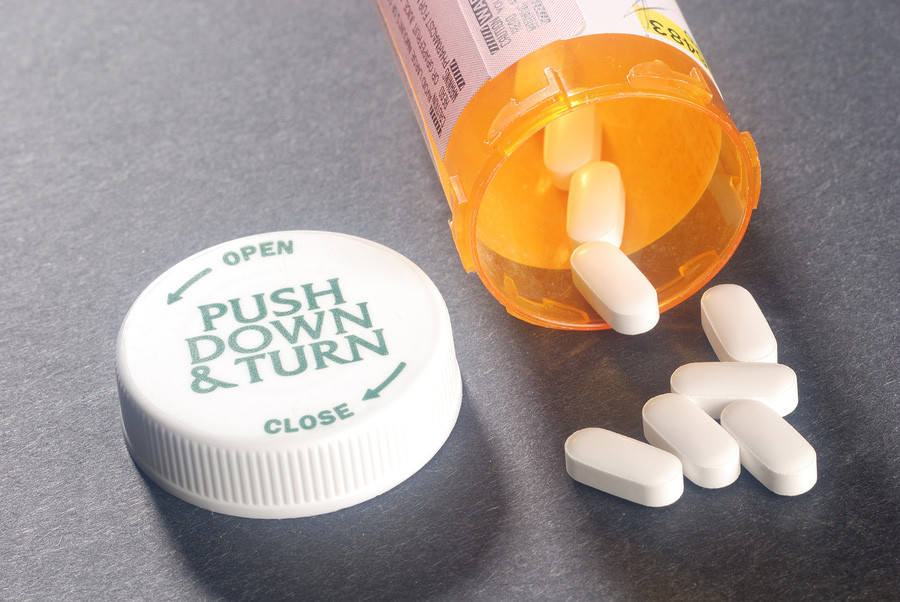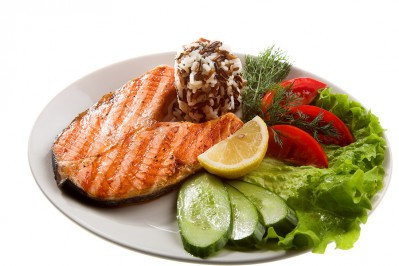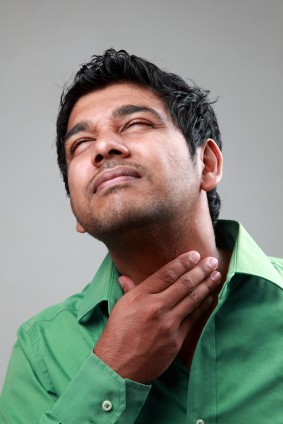
Respiratory health harms often follow flooding: Taking these steps can help

Tips to leverage neuroplasticity to maintain cognitive fitness as you age

Can white noise really help you sleep better?

Celiac disease: Exploring four myths

What is prostatitis and how is it treated?

What is Cushing syndrome?

Exercises to relieve joint pain

Think your child has ADHD? What your pediatrician can do

Foam roller: Could you benefit from this massage tool?

Stepping up activity if winter slowed you down
Harvard Health Blog
Read posts from experts at Harvard Health Publishing covering a variety of health topics and perspectives on medical news.
Articles
New guidelines published for managing high blood pressure
When it comes to your “health numbers,” your two blood pressure values are important to know—and keep under control. New guidelines for managing high blood pressure in adults, released this morning in a report in JAMA, aim to help doctors know when to start treating high blood pressure and how best to do it. The new guidelines recommend different treatment targets for individuals age 60 and older and those under age 60. They also offer doctors advice on the best medications to start with to control high blood pressure. Although the new guidelines address an area of controversy—how low should blood pressure go—they don’t change the basics: Know your blood pressure. Consider high blood pressure to be a reading of 140/90 or greater. Lifestyle changes are important. And tailor treatment to your needs.
Tea: Drink to your health?
Could tea be a health beverage? Eleven new studies in the American Journal of Clinical Nutrition highlight the many ways that tea may improve health: Tea drinking appears to lower the risk for heart disease and stroke, may strengthen bones, and appears to improve mood, concentration, and performance. Natural compounds called polyphenols in tea might protect against several cancers, including those of the prostate, GI tract, lungs, breast, and skin, and may also increase metabolism and promote weight loss. Those possible benefits apply to tea, not tea extracts condensed into pills. If you’re a tea drinker, enjoy your favorite brew with the added satisfaction that it may be good for your health. If you aren’t, there’s no reason to start.
Two-thirds of seniors need help doing one or more daily activities
A longer lifespan can be a double-edged sword. You live for more years, but the later years may not necessarily be what you had in mind. We’ve known for some time that about 25% of older Americans can’t perform some activities of daily living without help. But we don’t know much about the other 75%. A new study suggests that two-thirds of Americans over age 65 need help doing everyday activities such as eating, bathing, and getting in and out of bed or a chair. Things you can do to help ward off becoming frail or disabled include staying active, managing weight and eating a healthy diet, preventing falls, making connections with others, and seeing your doctor(s) regularly.
Treating severe snoring can help with tough-to-control blood pressure
Sleep apnea—pauses in breathing while sleeping followed by snoring-like gasps for breath—can cause daytime drowsiness and mental fatigue. It can also boost blood pressure and the risk for developing heart disease. A new study suggests that treating sleep apnea by using a breathing machine during sleep can make a difference for people with hard-to-treat high blood pressure. Although blood pressure medications offer a bigger bang for the buck to reduce blood pressure, treating sleep apnea can help, and offers other benefits as well. Getting used to using a breathing machine, which delivers continuous positive airway pressure (CPAP), may take some work. One key is to find a mask that works, which may be a trial-and-error process.
Easy exercises for couch potatoes
If you have trouble finding the motivation to break away from the television and exercise, try couchersizing—staying on or near your couch and exercising during commercial breaks. Why bother? A growing body of evidence links the amount of time spent sitting to illness and even death. And just minimizing long periods of inactivity, like exercising during commercial breaks, can help reduce the risk of injury and may even help you live longer. You can work many different muscle groups while seated upright on a couch. Want to get your heart rate up, work the oblique muscles on the sides of the abdomen. To whittle your waist, try twisting your torso from side to side for the length of a commercial break. You can even exercise while lying on the couch.
Making peace with holiday buffets
Overeating during the holidays is practically a tradition. But overindulging can lead to weight gain, fatigue, and guilt. There are several tactical strategies you can employ to get you through the season of eating. Plan ahead: Find out when you’ll be eating, and plan your day around the meal; if you can bring a dish for the buffet, bring something healthy. At the buffet: Grab a salad plate instead of a dinner plate, and choose wisely; don’t waste calories on foods that aren’t special. At the table: Pace yourself by taking small bites, chewing slowly, and sipping water in between bites. Slowing down helps your brain get the message that you’re full. If all else fails: Don’t beat yourself up. Just get back to a healthy eating plan as soon as possible.
Heart attack chest pain is similar in women and men
In many ways, women are different from men. One way in which they are alike is how they “feel” a heart attack: with similar kinds of chest pain. Other heart attack symptoms may differ, but chest pain is pretty standard, according to European study of nearly 2,500 men and women. Few differences in chest pain were seen between the sexes. What’s more, the kind or duration of chest pain didn’t help tell a heart attack from some other problem. The conclusion? A careful medical history, an electrocardiogram, and blood tests are the best way to diagnose a heart attack in men and women. During a heart attack, more than three-quarters of men and women experience chest pain or discomfort. In the run-up to a heart attack, chest pain with exertion is a more common warning sign in men, while women often have other types of symptoms, such as fatigue and disturbed sleep.
Join the Great American Smokeout
If you smoke, you’ve probably heard that quitting is beneficial at any age. It’s good for your health, can make you feel and look better, and saves you money. But you also know, from personal experience or the experiences of friends, that quitting is hard. Take heart. Today, there are more ex-smokers than smokers in the United States. There are also more and better tools to help people quit. Each year on the third Thursday of November, the American Cancer Society sponsors the Great American Smokeout. It aims to make smokers and their loved ones more aware of the benefits of quitting and the tools available for achieving that goal. In support of the Great American Smokeout, Harvard Health Publishing is giving away free electronic copies of the Harvard Medical School Guide: How to Quit Smoking. This offer ends at midnight tonight (Nov. 21, 2013).
Eating nuts linked to healthier, longer life
Move over, apples: A handful of nuts a day keeps the doctor away—and might help you live longer, according to new results from two long-running studies. Writing in tomorrow’s New England Journal of Medicine, Harvard researchers showed that daily nut-eaters were less likely to die from cancer, heart disease, and respiratory disease. Overall, the daily nut-eaters were 20% less likely to have died during the course of the study than those who avoided nuts. (Peanuts, which are actually legumes, counted as nuts in this study). While everybody is searching for the perfect nut, the health benefits hold true for variety of nuts.
Do “energy boosters” work?
Stroll the aisles of any pharmacy or “health food” store and you’ll see a multitude of herbs and other supplements that claim to boost energy. Yet there is little or no scientific evidence to support such claims for most of these substances. The fact is, the only thing that’ll reliably boost your energy is caffeine or other stimulant—and their effects wear off within hours. Substances commonly touted as energy boosters include chromium picolinate, coenzyme Q10, creatine, dehydroepiandrosterone (DHEA), ephedra, ginkgo biloba, ginseng, guarana, and vitamin B12. Instead of relying on a supplement for energy, try switching to a healthful diet—more vegetables, fruits, whole grains, nuts, lean protein, and unsaturated fats—and exercising more. That’s truly a better way to beat an energy shortage, and it’s one your whole body will appreciate.
Cholesterol and statins: it’s no longer just about the numbers
Updated cholesterol guidelines released yesterday by the American Heart Association and American College of Cardiology aim to prevent more heart attacks and strokes than ever before. How? By increasing the number of Americans who take a cholesterol-lowering statin. The previous guidelines, published in 2002, focused mainly on “the numbers”—starting cholesterol levels and post-treatment levels. The new guidelines focus instead on an individual’s risk of having a heart attack or stroke. The higher the risk, the greater the potential benefit from a statin. A statin is now recommended for anyone who has cardiovascular disease, anyone with a very high level of harmful LDL cholesterol, anyone with diabetes between the ages of 40 and 75 years, and anyone with a greater than 7.5% chance of having a heart attack or stroke or developing other form of cardiovascular disease in the next 10 years.
On Veterans Day, don’t let the “invisible wounds” of PTSD remain hidden
Millions of American men and women have served in the Armed Forces, protecting and defending our nation. Although many died, most returned home to “pick up their lives.” That isn’t always easy. For some veterans, the trauma of war changes the brain in ways that can cause long-term problems. According to the American Psychiatric Association, more than 300,000 veterans of the wars in Iraq and Afghanistan have been diagnosed with PTSD. Countless others probably suffer from this condition but have never sought help for it. Even sadder, in 2012 more military deaths were caused by suicide than by combat. If you know a veteran, thank him or her for having served our nation. And if you think he or she is having trouble, bolster your courage and ask. Beginning the conversation may open the door to healing.
FDA gets with the evidence, proposes that trans fats are not “safe”
Trans fats, once seen as harmless additives that ended up in everything from Twinkies to French fries, are finally getting the reputation they deserve—bad for health. For years, the FDA has labeled trans fats as “generally recognized as safe.” That term applies to substances added to foods that experts consider safe, and so can be used without testing or approval. Yesterday the FDA proposed removing trans fats from the generally recognized as safe list, a step that would eliminate artificial trans fats from the American food supply. Oils rich in trans fats, long a workhorse of the food industry, boost harmful LDL cholesterol. They also depress protective HDL, which trucks LDL to the liver for disposal; have unhealthy effects on triglycerides; make blood platelets more likely to form artery-blocking clots in the heart, brain, and elsewhere; and feed inflammation, which plays key roles in the development of heart disease, stroke, and diabetes.
Adopt a Mediterranean diet now for better health later
It’s been a big year for the Mediterranean diet. Convincing evidence published in 2013 has shown that this kind of eating pattern is effective at warding off heart attack, stroke, and premature death. While you probably get the biggest payoff by adopting such a diet early in life, a new study shows that doing it during midlife is good, too. In the study, women who followed a healthy diet during middle age were about 40% more likely to live past the age of 70 without chronic illness and without physical or mental problems than those with less-healthy diets. The healthiest women were those who ate more plant foods, whole grains, and fish; ate less red and processed meats; and had limited alcohol intake. That’s typical of a Mediterranean-type diet, which is also rich in olive oil and nuts.
Home score for strep throat in adults could avoid unnecessary doctor visits
Telling the difference between run-of-the-mill sore throat caused by a virus, which doesn’t require medication, from bacteria-caused strep throat, which should be treated with antibiotics, is a tricky thing at any age. Physicians from Harvard Medical School, MIT, and the Skaggs School of Pharmacy in California have come up with a scoring system that could save adults a trip to the doctor for what would most likely turn out to be a garden variety sore throat (it hasn’t been tested in kids yet). It’s based on symptoms, age, and the percentage of people in your area who have tested positive for strep within the last two weeks. If your score is high, then head to your doctor’s office. If it indicates that you are unlikely to have strep, there’s little need for you to rush in for an exam or throat culture. The researchers estimate that use of this kind of score could prevent 230,000 office visits in the United States each year and keep 8,500 men and women from getting antibiotics they don’t need.
Daylight Saving Time “fall back” doesn’t equal sleep gain
Daylight Saving Time officially ends at 2:00 am this Sunday. In theory, “falling back” means an extra hour of sleep this weekend. But it doesn’t usually work out that way. Many people don’t, or can’t, take advantage of this weekend’s extra hour of sleep. And the focus on gaining or losing an hour of sleep overlooks the bigger picture—the effect of Daylight Saving Time transitions on the sleep cycle. This seemingly small one-hour shift in the sleep cycle can affect sleep for up to a week. It’s difficult to side-step the effects of Daylight Saving time on sleep. So be aware that it can take your sleep rhythms a week or so to get adjusted to the new clock.
Balance training seems to prevent falls, injuries in seniors
Most people take balance for granted. They navigate without thinking, effort, or fear. For millions of others, though, poor balance is a problem. Some struggle with long-term dizziness or imbalance. Others suffer balance-related falls and injuries. A new study concludes that exercise can reduce not only the odds of falling but the odds of sustaining fall-related injuries. In many urban areas, there’s no shortage of classes aimed at improving balance. You can find them at senior centers, Y’s and Jewish Community Centers, health clubs, and the like. There’s also a lot you can do at home. The American College of Sports Medicine Standing recommends standing with one foot in front of another, lifting a foot off the floor, and shifting weight in various directions as three examples of home exercises.
Radiation for breast cancer can increase heart risks
Radiation, on its own or coupled with other treatments, has helped many women survive breast cancer. Yet radiation therapy can cause the appearance of heart disease years later. New research published in JAMA Internal Medicine estimates that the increased lifetime risk for a heart attack or other major heart event in women who’ve had breast cancer radiation is between 0.5% and 3.5%. The risk is highest among women who get radiation to the left breast—understandable, since that’s where the heart is located. The heart effects of radiation begin emerging as soon as five years after treatment. However, future heart risk should not be the reason to abandon this important component of treatment. Cancer experts are doing more and more to minimize the amount of radiation the heart receives.
World Stroke Day: stroke is common, disabling, and often preventable
Today is World Stroke Day. It offers a good reminder of the profound impact that stroke has on individuals and communities. Nearly 800,000 Americans have strokes each year. Worldwide, one in six adults will have a stroke during their lifetime. Although most survive, stroke is a leading cause of disability in the United States and many other countries. A report published last week in The Lancet documents a troubling trend: more and more young people are experiencing strokes. Between 1990 and 2010, the number of strokes among people aged 20 to 64 years increased 25%. This age group now accounts for one-third of strokes worldwide. Some stroke survivors recover fully and regain their previous levels of function. Others don’t. Keys to full recovery include rapid identification of stroke symptoms, immediate evaluation and treatment, early rehabilitation, and support
Prostatitis: inflamed prostate can be a vexing health problem
Prostatitis (infection or inflammation of the prostate gland) flies under the radar even though it affects up to one in six men at some point in their lifetimes. It triggers more than two million visits to doctors and untold agony each year.
Wellocracy aims to help trackers choose and use health apps and devices
There’s something satisfying about getting immediate feedback about exercise, sleep, and other activities. That’s why more and more people are joining the “quantified-self” movement. It involves formal tracking of health and habits, usually using apps and devices that feed data to them—from heart rate, activity, and sleep monitors to Bluetooth connected scales. But with so many apps and connected devices on the market, it can be hard to decide which ones are worth trying. Wellocracy, a website launched by the Harvard-affiliated Center for Connected Health, aims to give people impartial information about fitness trackers, mobile health apps, and other self-help technologies. It reviews dozens of sleep trackers, wearable activity trackers, mobile running apps, and mobile pedometer apps, lets you compare apps and devices in each category, provides a guide for beginners and offers tips for adding activity “bursts” throughout the day.
For fans, World Series is a marathon, not a sprint
Millions of baseball fans will tune in tonight for the opening game of the World Series. Boston Red Sox versus St. Louis Cardinals. Sportswriters are saying it will be an interesting series between two well-matched teams. Football fans have it easy. They have to sit through just one big game to decide the year’s champion. For us baseball fans, it could take seven games spread over nine days to determine this year’s champion. That means fans need to approach the series as a marathon, not a sprint. Pay attention to sleep, exercise, food, alcohol, and emotions. The Red Sox and Cardinals are two very likable teams. Commentators point out that these guys play the game the “right way.” The players themselves say it’s going to be fun. Let’s see if we fans can remember that baseball is a game. This World Series should be fun to watch. Whoever you’re rooting for, have fun watching.
Flu shot linked to lower heart attack, stroke risk
Getting the flu shot may do more than protect against the flu and its lingering aftermath. It also lowers a person’s odds of a having heart attack, stroke, heart failure, or other major cardiac event—including death—by about a third over the following year. What’s the connection between flu and cardiovascular problems? The body mounts an impressive immune response against the flu. That causes a lot of inflammation, which destabilizes cholesterol-filled plaque inside blood vessels. Plaque rupture can cause a heart attack or stroke. Experts recommend a flu shot for everyone six months of age and older. It is especially important for those who face the highest risk of complications: young children; adults over age 50; those of all ages with serious health conditions such as cardiovascular disease, asthma or other lung disease, liver or kidney disease, or diabetes; and those who care for young children or other individuals at high risk of flu complications.

Respiratory health harms often follow flooding: Taking these steps can help

Tips to leverage neuroplasticity to maintain cognitive fitness as you age

Can white noise really help you sleep better?

Celiac disease: Exploring four myths

What is prostatitis and how is it treated?

What is Cushing syndrome?

Exercises to relieve joint pain

Think your child has ADHD? What your pediatrician can do

Foam roller: Could you benefit from this massage tool?

Stepping up activity if winter slowed you down
Free Healthbeat Signup
Get the latest in health news delivered to your inbox!
Sign Up



